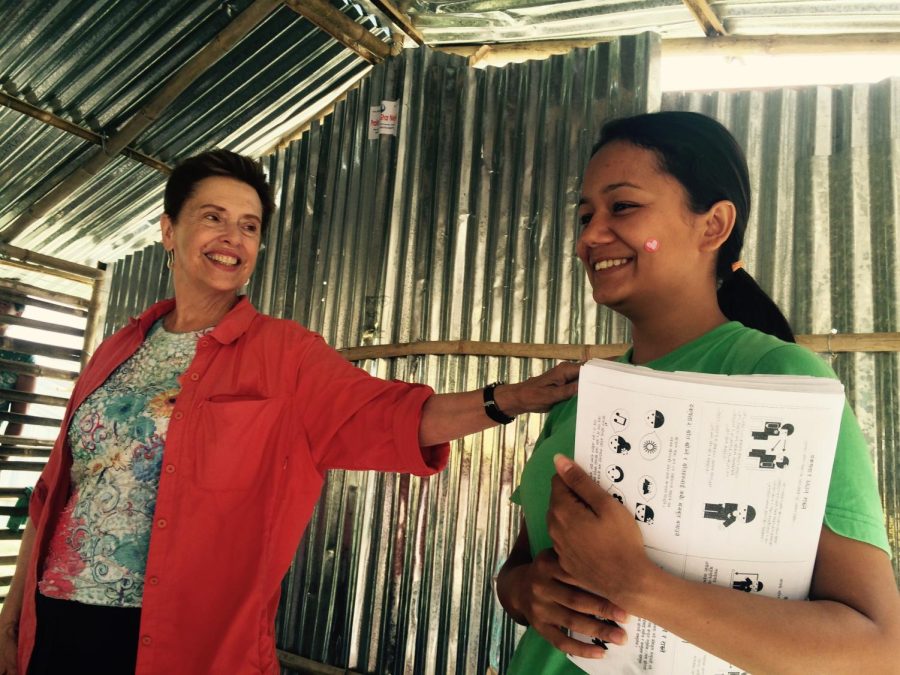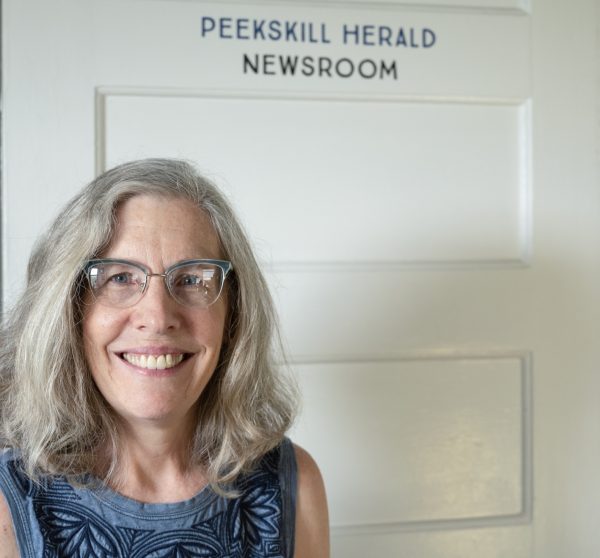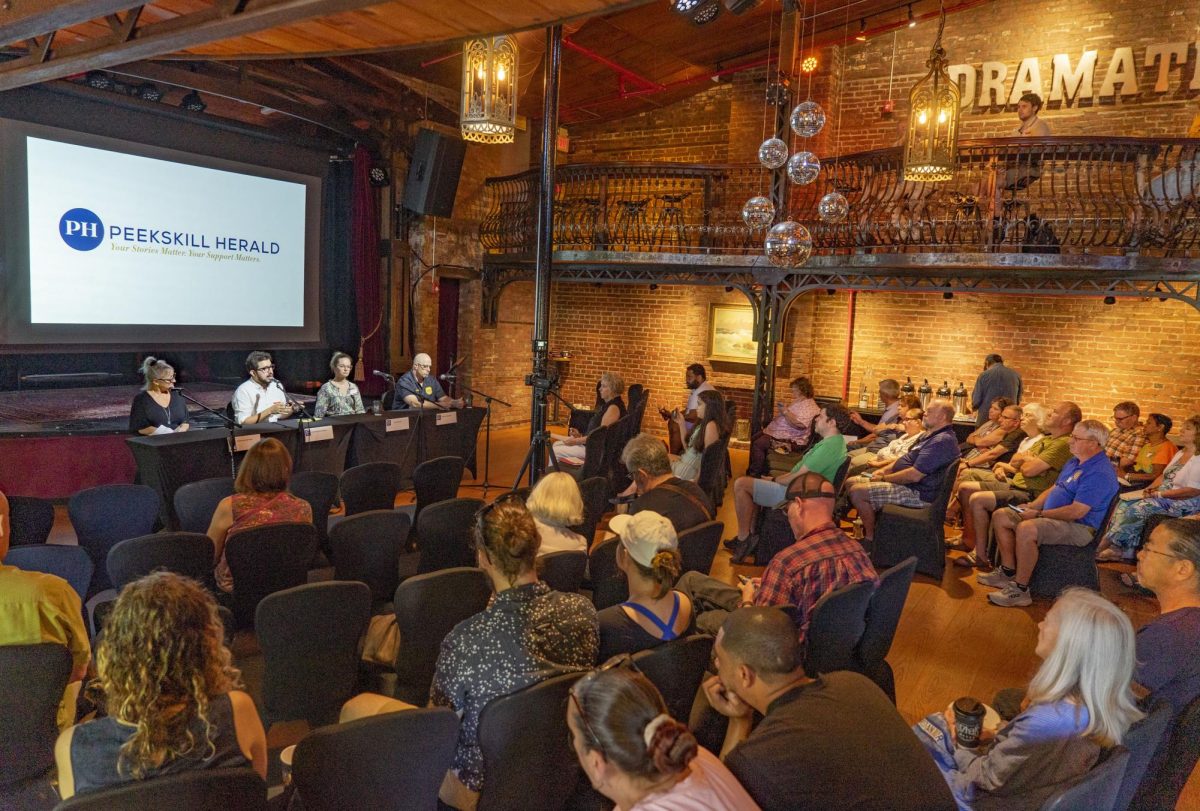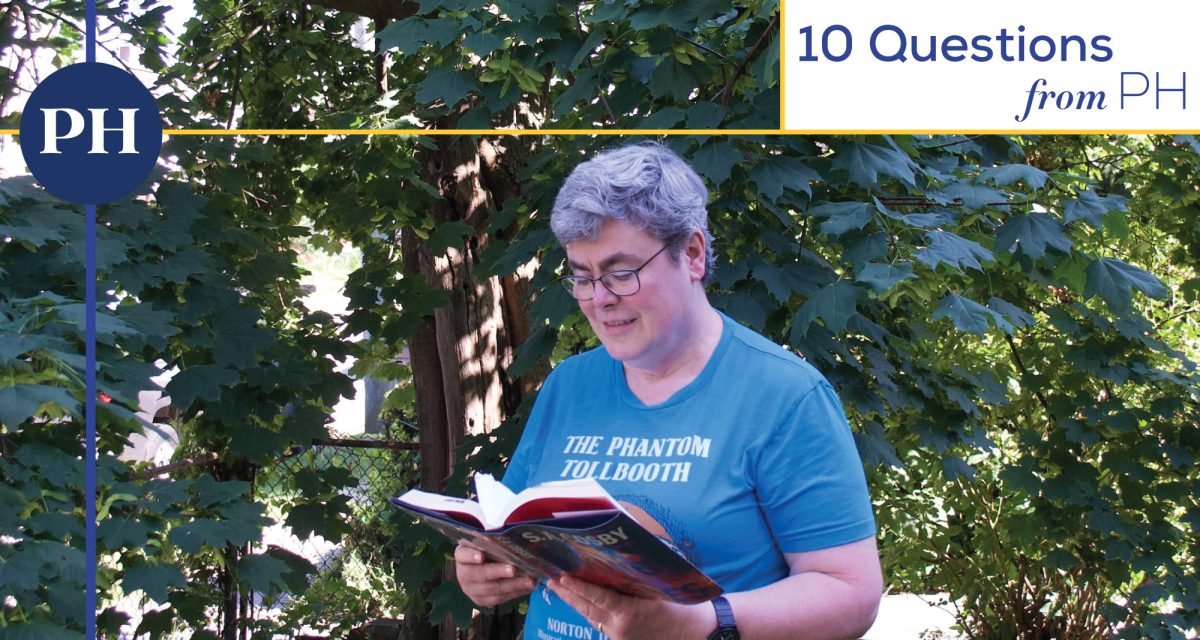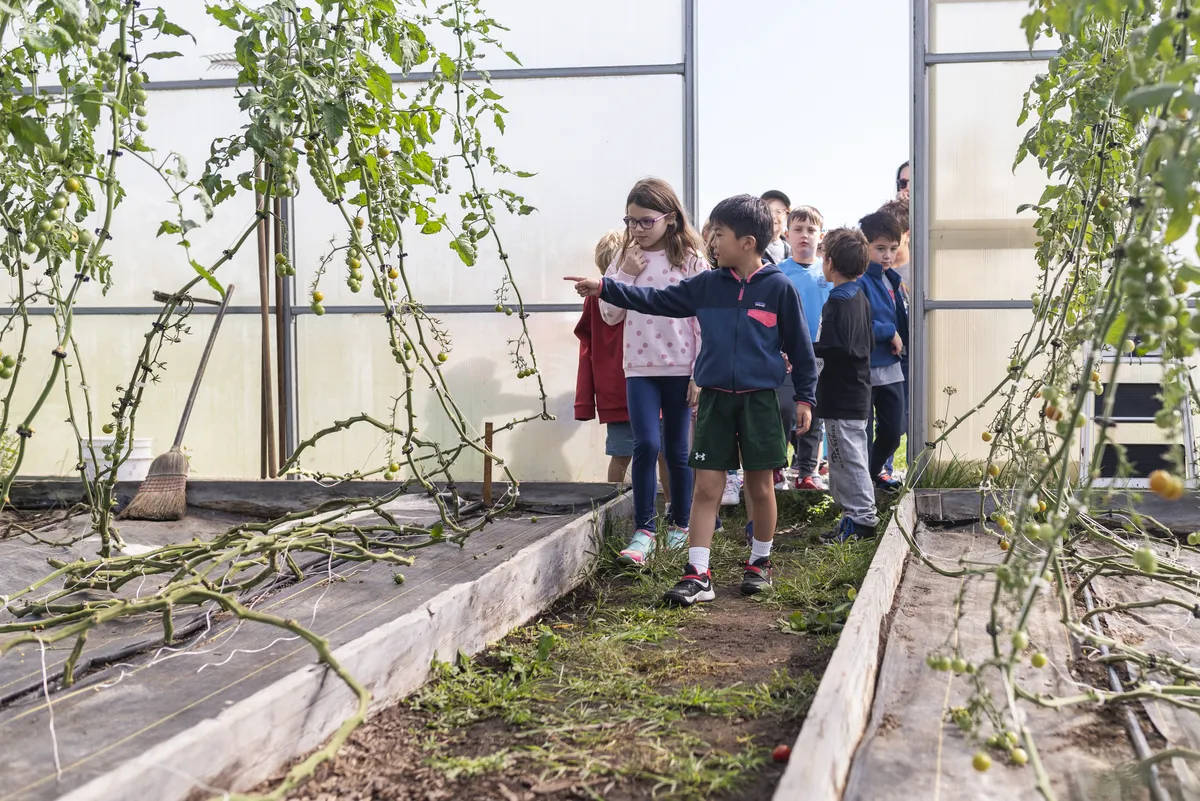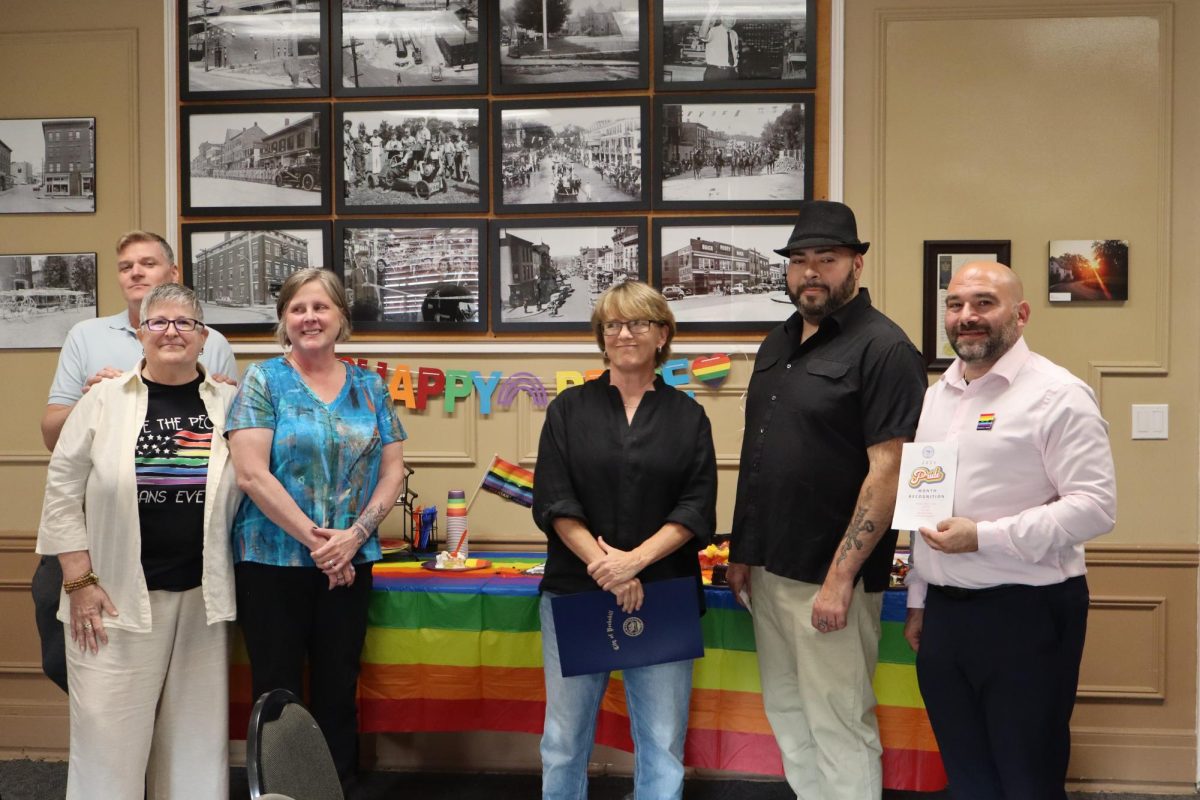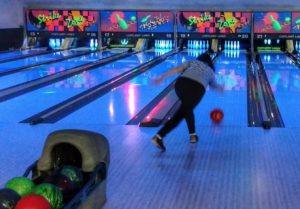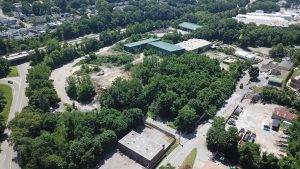Your brain has superpower
Author shares tools to tackle life’s heavy lifting
The author, in red, with a person she’s trained as a resilience messenger in Nepal. The woman is holding the skills cards Leitch developed.
June 21, 2023
Laurie Leitch was working at an internally displaced persons camp in China. The man sitting in front of her was a police officer who had lost his wife and two of his children in the Sichuan earthquake.
“My heart is black with grief,” the man said as he sat down to do some work on traumatic loss. Leitch acknowledged his loss and then shifted his attention by asking him to tell her about who had survived. The man pulled out a photo of his surviving son.
“Tell me about your son,” she said.
The man began talking and Leitch asked for more details about his remaining child. After a while, he looked at Leitch and said with surprise, “Half my heart is now pink.”
Leitch has spent decades traveling the country and the world helping people like this man build resilience. Whether victims of natural disaster, war trauma, systemic racism and structural inequality, or simply the challenges of daily life, Leitch has used her Social Resilience Model (now also called Brain Gain Program) to teach people the skills they need to thrive. Leitch shares this model in her recently published book, Brain Gain: Timely Tools to Tackle Life’s Heavy Lifting.
The book may be called Brain Gain, but it is a book the author wrote from her heart.
“My book is inspired by my work in underserved communities, whether they’re international communities or here in the U.S.,” Leitch says. “But it’s also intended for people who just are stressed by the way they have to live their lives to support themselves.
“There’s a lot that we can control that most people don’t know about,” says Leitch. Her goal, with her work and now this book, is to change that so people know specifically what they can do to deepen resilience.
Leitch grew up in the Midwest and eventually moved to Washington, DC, where she raised her children and was a clinical psychotherapist for many years. While in DC, Leitch took a course on brain structure and became very interested in neuroscience.
“It’s about how your brain-body system works,” Leitch says. “How could you not be interested?”
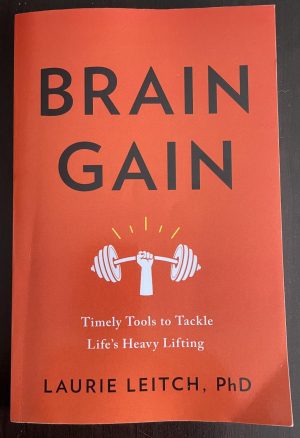
What Leitch learned about the brain and its neuroplasticity became the foundation of her life’s work.
In Brian Gain, Leitch describes neuroplasticity, the ability of your brain to be rewired by growing or deleting neurons, as a superpower. She explains that every person has the ability to change their brain for better or for worse by controlling what they pay attention to and what they practice.
“What you pay attention to is what you wire in,” Leitch says. “We can change the brain by using certain practical skills, which is what Brain Gain lays out and describes in a lot of detail.”
Leitch has taught these skills all over the country and around the world. In the U.S. she did post 9/11 intervention, worked with survivors after Hurricanes Katrina and Rita, and continues to work with formerly incarcerated people, among other groups. Internationally Leitch has helped survivors of genocide as well as genocide perpetrators in Rwanda, earthquake survivors in Haiti and China, and displaced persons in Kenya, among others.
Leitch recalls an early trip to Thailand to help tsunami survivors. “It was just life-altering to go into that level of trauma and realize that there were things that you could do to start to help the mind-body system restore its natural resilience,” she says.
What is resilience? “It’s the ability to bounce forward after difficult times,” Leitch says. It’s also the ability “to be generative during times of relative stability.”
How is Leitch able to do her work in any community anywhere in the world? “Every single human is wired the same way” she says, no matter where in the world a person lives or what their education level. (She uses translators when working internationally.)
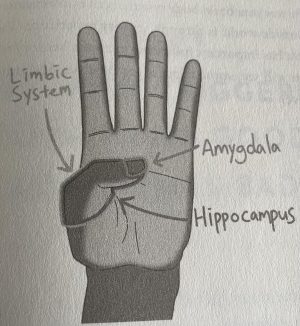
Covid sharply curtailed Leitch’s travel schedule but being home gave her the opportunity to write this book. “It’s been in me to write it for a while,” Leitch says. She wanted her work to be accessible to anybody. “My focus has been people in marginalized communities, because they seldom get something like this,” she says of her book.
“The biggest piece of my heart lies in helping people who have somebody’s thumb on them all the time,” Leitch says. “ I want to offer them skills they can use to help themselves attain their goals and dreams.”
Leitch adds that there are also important physical benefits to learning how to become more resilient. “The long term gain is that the body isn’t poisoned by stress chemicals,” she says.
Brain Gain is just one way Leitch is spreading the word that a person has the power to “actively design the brain that serves you best.” She has also developed Train the Trainer classes where anywhere from 20 to 60 people spend a year or so learning how to help others use the Brain Gain Program.
“We have trained over 900 people in the past three years in the use of these self-care skills,” Leitch says. These trainers share what they have learned with others, so that the benefit is exponential. The trainers also benefit from what they learn themselves.
“I’m not exaggerating when I say in a lot of ways the Social Resilience Model opened a whole new world for me as far as coping with and managing my stress,” one SRM trainer noted.
Leitch hopes her book provides readers with tools to increase their own resilience along with the desire and knowledge to share what they learn with others.
To help others share, or to become what Leitch calls “Resilience Messengers,” the author includes Brain Gain Program Skills Cards. The cards, which she first developed for use in Haiti, have become an important component to her work. Each card has two sides. One side details neuroscience information and the other side demonstrates skills for developing resilience.
“If somebody asked me what I’m proudest of in my professional accomplishments, it would have to be the skills cards,” Leitch says.
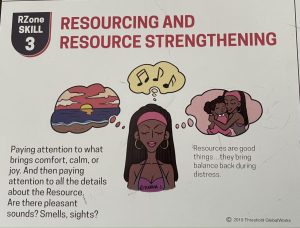
Since the pandemic, Leitch has done much of her work to make people aware of the control they have over their brain and nervous system, (their superpower), virtually from the home she shares with her wife, Brigadier General (Ret.) Loree Sutton, MD, in Peekskill. Leitch says that it was fate that led them to buy a home here ten years ago.
“We wanted to live along the Hudson,” Leitch says. One day they headed up from their home in Manhattan to look at houses near Bard College in Red Hook.

“Loree got hungry as we were driving through Peekskill,” Leitch remembers. They ended up eating at the Division Street Grill. When they told the owner they were looking for a house along the Hudson, he said his friend had a Victorian that he was selling. The owner called his friend, Leitch and her partner went to look at the house, and they were sold.
“We’re so lucky Loree got hungry when she did,” Leitch says. “We completely love it here. Peekskill has grit as well as a lot of heart.”


